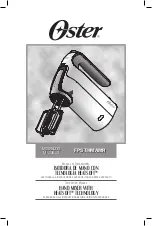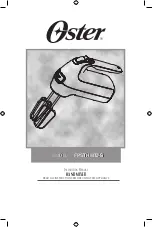
2 – Basic operational concepts : Options
TASCAM DM-3200 Owner’s Manual
33
radio button parameters, and the
ENTER
key to select
and de-select settings.
UPPER BAR DISPLAY
This parameter has two
options:
TIMECODE
and
SYSTEM
. When set to
TIMECODE
,
the top right field of the display shows incoming
timecode, and when set to
SYSTEM
, certain system
parameters (clock source, solo mode, etc.) are dis-
played.
The source of the timecode shown in this way is also
selectable between the timecode used for automation
sync (
AUTOMATION
Sync
Source
), timecode received at
the 9-pin serial port (
RS-422 IN TC
), and any other
timecode received.
TIP
The TASCAM Mixer Companion software can also dis-
play the timecode in a window on a personal computer.
LOCATE DISPLAY mode
This parameter deter-
mines how a location entry will be shown on the dis-
play: in the timecode position (
TIMECODE DISPLAY
) or
as a separate popup display in the center of the screen
(
LCD Screen Popup
).
ENCODER OPERATION mode
When using the
encoders (“Encoder behavior” on page 23), or the
PODs, the parameter being edited may sometimes
have too many values to allow easy setting using the
encoder (for example, there are 127 different pan
positions). Using the
1Step
setting, one “click” of the
encoders corresponds to one step in the parameter
values. Using the
Coarse
option allows the changing
of the parameter values to be accelerated, with fewer
clicks of the encoder. See also “Encoder behavior”
on page 23.
LIBRARY DIRECT KEY OPERATION
This
parameter controls the type of library accessed by the
RECALL
and
STORE
, and the
+
and
–
keys in the
LIBRARY
section to the left of the screen. There are
six choices:
Snapshot
refers to the overall mixer set-
tings,
Gate
to the gate libraries,
Comp/Expand
to the
dynamics processor settings for gate and expander
effects,
EQ
to the equalization setting library, and
Effect1
and
Effect2
to the first and second internal
effector settings, respectively.
If the
+/- Key Direct box
is checked, this allows instant
recall of a library entry selected using the
+
and
–
keys.
OL/STATUS LED TYPE
The
OL/STATUS
LED
indicators above each fader can serve one of two pur-
poses: firstly, if either of the two “overload” options
(
MIC/LINE
or
INPUT
) is selected, they act as overload or
signal detection indicators (depending on the setting)
when the input level exceeds the level set in the
LEVEL
field (
OVER
,
0
,
–2
,
–4
,
–6
,
–8
,
–10
,
–12
,
–18
,
–30
or
–42
(dB)).
This status can be set for either the
MIC/LINE
inputs 1
through 16 or for the
INPUT
associated with the mod-
ule, using the appropriate radio buttons.
Set the level for the overload lighting by moving to
the value, pressing the
ENTER
key, turning the dial to
set the value and pressing
ENTER
to confirm the
value.
Otherwise, if the
AUTOMATION
option is selected,
these indicators show the current automation status
of the channels, as explained in the separate Automa-
tion Manual.
FADER SENSITIVITY
This parameter allows you
to specify the sensitivity of the faders, as used in the
automation process.
The DM-3200 touch sensing capabilities are depen-
dent on the ambient humidity and environment.
Depending on these factors, it may sometimes hap-
pen that faders which have been touched are not rec-
ognized as having been touched, or the faders are
recognized as having been touched when they have
not actually been touched.
The value of the sensitivity is set by default to 4.0k,
but you may wish to set it to any of the following val-
ues:
1.0k
,
1.5k
,
2.0k
,
2.5k
,
3.0k
,
3.5k
,
4.0k
(Hz). High
values mean higher touch sensitivity.
Figure 2.30: The SETUP option screen
Figure 2.31: Display top line set to SYSTEM
















































